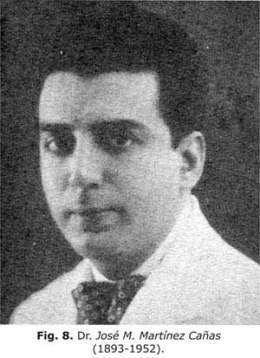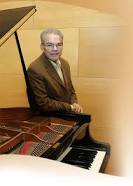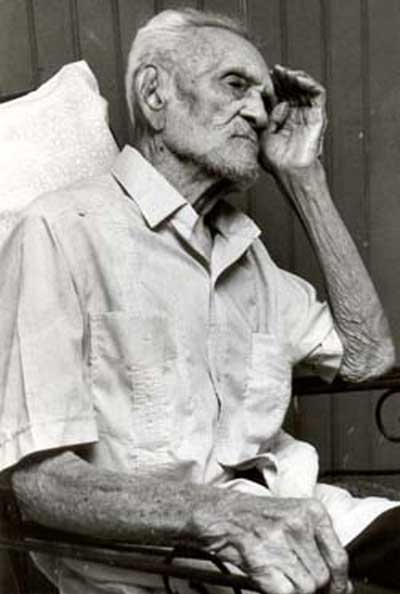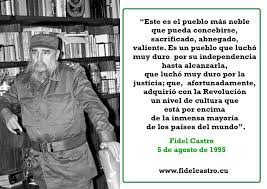
Havana ephemeris. August 5.
1893. José Manuel Martínez Caña is born in Havana.

He was a pioneer of electrocardiography in Cuba. He had the merit of having introduced phonocardiography in the country and was also the author of the first scientific works on cardiology published in Cuban territory and founder of the specialty.
He was Professor of Medical Pathology, member of the Academy of Medical, Physical and Natural Sciences of Havana and Founding member of the Cuban Society of Cardiology.
He also excelled in practicing sports, such as fencing, with which he achieved laurels in a tournament.
He died on June 7, 1952 in Havana.
1942. Cecilio Tieles is born in Havana.

Pianist and pedagogue, he has stood out as an instrumentalist who also deals with musical research. He has been a scholar of Afro-Hispanic culture. His repertoire includes symphonic and chamber works by diverse composers and varied styles, from the 17th century to the contemporary stage.
He has offered concerts as a soloist or accompanied by the National Symphony Orchestra, as well as other Cuban symphonic and chamber groups.
1951. From Havana Eduardo Chibás makes an intervention in the radio program that he attended. This intervention was known as "The Last Knock". In advance, he had denounced the corruption of a member of the existing government at that time in the country.

Being summoned by that character and not being able to reliably detail the corresponding evidence, Chibás decided, as a way of reaffirming his unwavering denunciation, to shoot himself during the broadcast of the program. Eleven days later he died in Havana.
Chibás was an exceptional figure in the political environment of his time. From a very young age he was linked to political struggles.
In 1947 he founded the Party of the Cuban People (Orthodox) to combat shamelessness and corruption in the country.
His example of honesty and his resolute fight against the corrupt elements that were part of the government influenced young people, like Fidel Castro, who made up the ranks of that organization.
1978. The XI World Festival of Youth and Students was closed in the Plaza de la Revolución José Martí, in Havana.

The event was attended by almost a million Cubans who gathered in the aforementioned square expressed the great pride that our people had felt for having hosted such a significant youth event.
The history of the World Student Youth Festivals is linked to the World Federation of Democratic Youth created in 1945, whose first event was held in Prague, the capital of the then Czechoslovakia in July 1947.
1990. In the area of El Cacahual, the body of Juan Fajardo, the last independence fighter of the 19th century who died, was deposited, for which he was symbolically identified as the last mambí.

His birth occurred on August 15, 1881 in the bosom of a poor peasant family, in the place known as Guayabal, an intermediate point between Contramaestre and Venta de Casanova. When he was 16 years old he joined the ranks of the Cuban Liberation Army on July 10, 1897.
Several decades later, when Cuba was fighting against the Batista dictatorship, he also gave his contribution. He collaborated as a gunsmith in the Third Front Mario Muñoz Monroy of the Rebel Army.
He received several decorations, among them the medal for Distinguished Services of the Revolutionary Armed Forces, on the occasion of his 107th birthday, in recognition of his long and outstanding revolutionary career.
In 1990 he was the only combatant of the Liberation Army alive in Cuba.
He died on August 2 of that year in Santiago de Cuba. His body was initially veiled in the historic Museum of the town of Baire and his remains were later transferred to Havana where they were deposited near the monument erected in honor of Antonio Maceo and his assistant Francisco Gómez Toro in El Cacahual .
1995. Fidel speaks on the occasion of the Youth March against the Blockade, held in the area of La Punta, in Havana.

He emphasizes: “This is the most noble people that can be conceived, sacrificed, selfless, brave. It is a people that fought very hard for its independence until it achieved it, that fought very hard for justice; which, fortunately, acquired with the Revolution a level of culture that is above the vast majority of the countries of the world.”
Fidel also states: I have had the privilege of seeing many concentrations, acts, tests of all kinds in war and in peace, the heroism of war and the heroism of peace; but I say like this, without leaving anything inside me, despite the fact that I know the problems we have, despite the fact that we know that there are always those who do not have all the necessary presence of spirit in conditions like these, that I think that this town today has more merit than ever, more conscience than ever and more heroism than ever.”